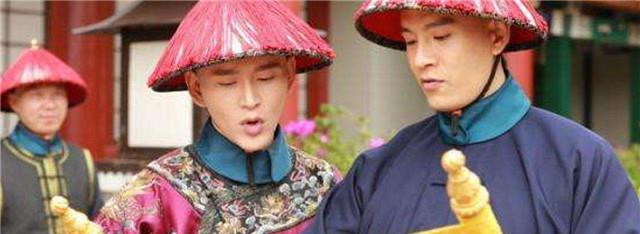"Fengtian carries the transport, the emperor decrees..." Whenever I hear the beginning of this sentence, I know that it is the emperor who has issued the holy will. Moreover, the people who generally read it were eunuchs trusted by the emperor, and they said these eight words in a shrill voice. This is a common scene in costume dramas.
However, in this process, two problems have emerged: one is that no matter what holy decrees the emperor has issued, all film and television dramas are the emperor's "edicts"; second, no matter what dynasty, the reading method is "Fengtian transport, the emperor's edicts".
In fact, the ancient holy will is mainly divided into three kinds, namely the edict, the system, the edict, the three types for different scenes, and different people, so how should we distinguish these three holy wills? And the reading method of film and television dramas also has errors, so what should be the correct reading? Next, for these two questions, the author will answer them for you.

Distinguish between the Holy Will
1. Edict
The edict was the instrument that the emperor announced to his subjects. If the emperor had something to tell his subjects, he would issue an edict at this time, which, as the name suggests, would be to tell the world.
2. System
It was used by the emperor when expressing imperial favor and declaring hundreds of officials. When the emperor appoints ministers, he will generally use the system, if you want to reward the minister with gold and silver, or give a title, etc., these are all within the scope of the system. Therefore, the system was generally not used on the people, but was issued by the emperor to the ministers.
3. Edict
Edicts are also generally issued to ministers, and when ministers are given officials and knights, they will be used. However, the edict generally has the meaning of admonition, that is, I will now give you a knighthood, but I hope that you will not rush to achieve quick success, or maintain a humble attitude.
Among them, the system and the edict should be emphasized that the title and promotion belong to the emperor's gift, but the system is only used for rewards, if it is an official promotion, it does not belong to the scope of the system. In the same way, the edict is used for promotion, but also serves as a warning, so when receiving other imperial rewards, it does not fall within the scope of the edict.
Now that I think everyone can distinguish the types of divine wills, what is the correct way to read the holy wills on the second question? In fact, not only is there a problem with the broken sentence of "Fengtian Transport, Emperor Edict", but also that not every dynasty, the holy will begins with this sentence.
Evolution of the Divine Will
In the beginning, the holy will was not called "holy will", and the orders issued by the emperor were generally called "order", "order", and "government", and from the beginning of the Song Dynasty, it was really called "holy will".
Before the Ming Dynasty, all the holy decrees did not begin with "Fengtian Emperor's Edict". During the Wei and Jin Dynasties, the holy decree generally began with "When the heavens are in order, they are ordered by Zi Ming". In the Tang Dynasty, because most of the holy decrees were issued through menxia provinces, most of them began with "menxia...". In the Yuan Dynasty period, the beginning of the Holy Will was all adopted "Immortal Weather Force, Great Blessing Shade Protector, Emperor's Holy Will...".
The real appearance of the "Fengtian Emperor Edict" was in the Ming Dynasty, formulated by Zhu Yuanzhang. "Fengtian" means "ordained by heaven, and given by providence, so he who is called the Son of Heaven also regards heaven as a father, and does things to heaven with filial piety."
"Carrying" means that the five elements are mutually reinforcing, each of which represents a virtue, and at the same time, the five virtues echo the five dynasties, symbolizing the rise and fall of the rise and fall. Therefore, Zhu Yuanzhang's meaning is that he is the emperor who inherits the way of the world's fortunes at the behest of heaven.
Many systems of the Qing Dynasty are retained during the Ming Dynasty, so the holy will of the Qing Dynasty also begins with these eight characters.
However, the correct reading of these eight words should be "Fengtian Carries the Emperor, Zhao Yue", and now many film and television dramas are wrong. I believe that everyone should now understand why they are so broken.
This means that the emperor who has undertaken the way of fortune in the world by the command of heaven has now issued a holy will, and as for what holy will he has issued, it is followed by "edict", "system" or "edict", and which one is specific depends on what content is promulgated.
(References :"The Great View of the Sacred Will of China", "Wan Liye Won", "Spring and Autumn Prosperity, Deep Investigation of the Name")